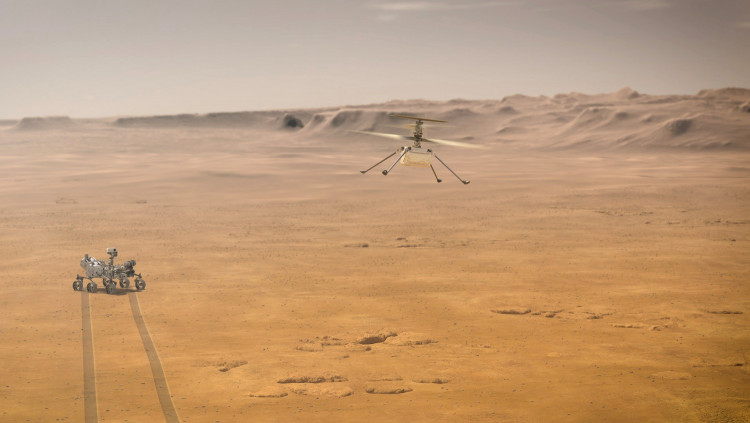The National Aeronautics and Space Administration's Perseverance rover is preparing to collect its first sample of Martian rock. This sample, which is expected to be returned to Earth by missions in the 2030s, could contain evidence of past life on Mars.
Since its February landing in Mars' Jezero Crater, the rover has been testing technologies and instruments as well as getting a feel for the crater floor.
A drill on the rover's 7-foot-long robotic arm will aid in the collection of samples for storage in the rover's caching system within the rover's belly. The process of collecting Perseverance's first Martian sample will take around 11 days, which is significantly longer than the three minutes and 35 seconds it took astronaut Neil Armstrong to collect the first lunar sample.
"When Neil Armstrong took the first sample from the Sea of Tranquility 52 years ago, he began a process that would rewrite what humanity knew about the moon," said Thomas Zurbuchen, associate administrator for NASA's Science Mission Directorate, in a statement.
"I have every expectation that Perseverance's first sample from Jezero Crater, and those that come after, will do the same for Mars. We are on the threshold of a new era of planetary science and discovery."
The Perseverance rover's primary purpose is to help uncover Mars' history by transporting us back to a time when the planet was warmer and wetter, in order to determine whether life ever existed on it.
The rover is being helped by the reconnaissance conducted through the mini-helicopter it brought to Mars. This small chopper, named Ingenuity, has been flying ahead of Perseverance to scout the terrain.
On July 21 at 1 p.m. EDT, NASA will hold a news conference to provide the first update on Perseverance's scientific work. The conference will be broadcast live on NASA TV, and will feature a number of NASA personnel, including the associate administrator for science, Perseverance's project manager and project scientist, and members of the teams planning the rover's movements and science investigations.






